You have no items in your shopping cart.
Bourgogne
Domaine Dupré
(1 customer reviews)
Born in the 1950s, the Dupré estate is very recent but nevertheless very talented. Jean-Christophe Dupré, the current owner, has embarked on a quest to constantly improve his farming practices. Moreover, he obtained the qualification of "agriculture raisonnée" in 2008 by implementing several techniques such as grassing, whose effectiveness he has demonstrated... Find out more
No wines available for sale
Bourgogne : most popular Voir tous les vins de la région
- -27%
- -25%
- -27%
The winemaker
History
The most surprising thing about Domaine Dupré is its...recent history. It was actually built in the 1950s but wasn't even focused on vines and wine. In fact, the beginnings were focused on polyculture with notably cereals and cattle. The vine was present but on only 3 hectares.
In 1990, Jean-Christophe Dupré joined his father and expanded the vineyard. Vincent, Jean-Christophe's brother, joined the family in their adventure in 1994. In the years that followed, the vineyard reached 12 hectares, exclusively reserved for vines.
The association of the three men worked wonderfully, if we are to believe the rise of the estate thereafter. Several decisions played a key role in the vineyard's metamorphosis. The cessation of livestock farming and the takeover of neighbouring vineyards increased the production potential of the Dupré estate. In their choices, they focused on the terroirs but also the micro-climates, in order to regroup a vineyard of 26 hectares today...
Sustainable viticulture
An area on which the objectives are clear: to produce a great wine by practicing a reasoned viticulture. It is from this desire to use less chemicals in the vineyards that our 3 protagonists took up this challenge. One of the first means is the grassing, which Jean-Christophe advocates the effectiveness. Indeed, it allows to limit the yields and to concentrate the grapes in sugar and acidity. Secondly, it reduces the use of herbicides, improves the structure of the soil and perpetuates the plots by avoiding the phenomenon of erosion.
But the dedication to integrated viticulture seems to run even deeper. Believe it or not, Jean-Christophe Dupré has installed his own weather station to track rainfall and treat the vines in the right place at the right time. The soils, of which the estate is very proud, are made up of white marl, where the 10 hectares of Chardonnay flourish, as well as a mixture of clay and limestone that the Pinot Noir and Gamay are particularly fond of. The vines have an average age of 25 years, which makes them still very vigorous and productive.
To avoid overproduction and a grape not very concentrated in color and aroma, the family must adopt a very precise pruning: Cordon de Royat. This short pruning allows indeed to limit the growth of too many bunches.
On the vinification side, the fermentation generally takes place over 3 weeks in stainless steel tanks. Then, some wines like the Macon, will rest for six months on lees, and will be enriched with new organoleptic properties. The barrels are replaced frequently to reach a rate of 20% (new) each year.

0 wines available
between 0 € and 0 €
between 0 € and 0 €

4 wine's scans
on Twil application
on Twil application
Find our technical sheets on Twil app
| Reference | Colour | Vintage | Appellation | community_reviews |
|---|---|---|---|---|
| Bourgogne Pinot Noir | Rouge | 2016 | Bourgogne | (1 reviews) |
| Bourgogne Aligoté | Blanc | 2023 | Bourgogne-Aligoté | not_rated |
| Bourgogne Aligoté | Blanc | 2021 | Bourgogne-Aligoté | not_rated |
| Bourgogne Aligoté | Blanc | 2022 | Bourgogne-Aligoté | not_rated |
| Bourgogne Aligoté | Blanc | 2017 | Bourgogne-Aligoté | not_rated |
| Bourgogne Pinot Noir | Rouge | 2022 | Bourgogne | not_rated |
| Bourgogne Pinot Noir | Rouge | 2017 | Bourgogne | not_rated |
| Bourgogne Aligoté | Blanc | 2016 | Bourgogne-Aligoté | not_rated |
| Bourgogne Pinot Noir | Rouge | 2018 | Bourgogne | not_rated |
| Bourgogne Pinot Noir | Rouge | 2021 | Bourgogne | not_rated |
| Bourgogne Aligoté | Blanc | 2020 | Bourgogne-Aligoté | not_rated |


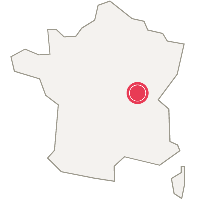








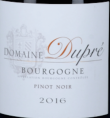
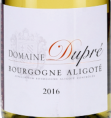

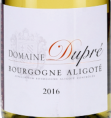
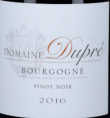







 TWIL - Achat de Vin
TWIL - Achat de Vin


